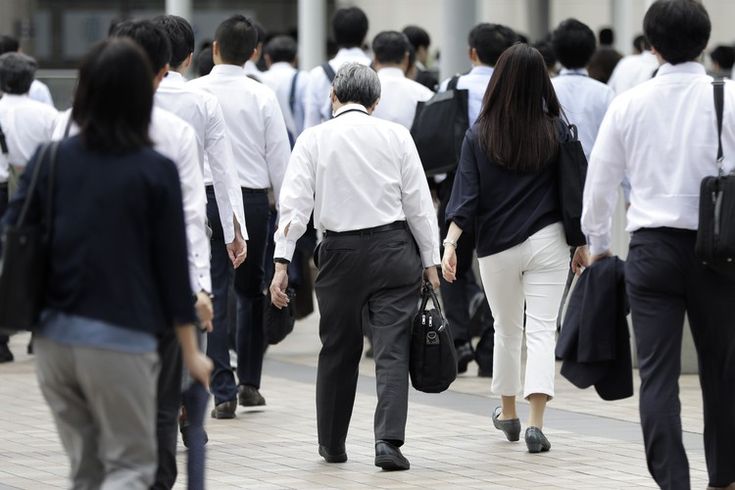Employee Benefits in Japan: What you need to know?
Moving to Japan for work is an exciting adventure! You’re probably thinking about your new job, exploring a different culture, and maybe even tackling the language. But there’s also a practical side to settling in: understanding your employee benefits. For expat workers, navigating the Japanese benefits system can seem a little daunting at first. Don’t worry, we’re here to break it down for you in a friendly, easy-to-understand way.
Understanding Employee Benefits in Japan
In Japan, employee benefits, often referred to as fukuri kōsei (福利厚生), are a crucial part of your compensation package. While they might differ slightly from what you’re used to back home, they provide essential support for your health, finances, and work-life balance. Knowing what to expect helps you make the most of your employment.

Key Employee Benefits in Japan
Let’s look at the main benefits you’ll likely encounter:
1. Social Insurance (Shakai Hoken – 社会保険)

This is perhaps the most significant part of your benefits package. Social insurance is mandatory for most full-time employees and covers two main areas:
- Health Insurance (Kenko Hoken – 健康保険): This covers a significant portion of your medical expenses, typically 70%. You’ll receive a health insurance card (健康保険証 – Kenko Hoken Sho) which you need to show at hospitals and clinics. Contributions are deducted directly from your salary and matched by your employer.
- Pension Insurance (Kōsei Nenkin – 厚生年金): This is the public pension system for private-sector employees. Contributions are also deducted from your salary and matched by your employer. It provides retirement income, as well as disability and survivor benefits. Expats may be eligible for a lump-sum withdrawal payment upon leaving Japan, depending on their situation and years of contribution.
Joining Shakai Hoken is essential. It provides a safety net for health issues and contributes to your future financial security.
2. Labour Insurance (Rōdō Hoken – 労働保険)

This mandatory insurance covers two important areas:
- Unemployment Insurance (Koyō Hoken – 雇用保険): Provides temporary financial support if you lose your job under certain conditions. It also covers some training and re-employment support programs.
- Workers’ Accident Compensation Insurance (Rōsai Hoken – 労災保険): Covers medical expenses, lost wages, and disability benefits if you are injured or become ill due to work or commuting. The employer covers the full cost of this insurance.
Both Labour Insurances are vital safety nets provided by the government system.
3. Paid Leave (Yukyu Kyuka – 有給休暇)
This is your right to paid time off from work. The amount of paid leave you receive is regulated by law and increases with your length of service. Generally, full-time employees are entitled to 10 days after 6 months of continuous employment, working at least 80% of scheduled workdays. This increases annually up to a maximum of 20 days per year after 6.5 years.
Using your paid leave is important for rest, relaxation, and maintaining a healthy work-life balance. Your employer cannot prevent you from taking your entitled leave, although they can sometimes adjust the timing for business reasons.
4. Other Types of Leave
Beyond paid leave, Japanese law also mandates or often includes other types of leave:
- Maternity Leave (Sanzen/Sango Kyuka – 産前産後休暇): Provides leave before and after childbirth.
- Childcare Leave (Ikuji Kyugyo – 育児休業): Allows parents (both mothers and fathers) to take extended leave to care for a child.
- Family Care Leave (Kaigo Kyugyo – 介護休業): Provides leave to care for a sick or injured family member.
- Special Leave: Some companies offer additional leave for marriage, bereavements, or refreshing leave (リフレッシュ休暇 – Refresh Kyuka) after a certain number of years of service.
These different types of leave reflect Japan’s efforts to support employees through various life events.
5. Commuting Allowance (Tsukin Teate – 通勤手当)
Most companies in Japan provide a commuting allowance to cover your transportation costs to and from work. This is usually paid monthly and is often based on the actual cost of your train or bus pass. There might be a maximum limit set by the company.
6. Additional Company-Specific Benefits
Beyond the legally mandated benefits, many companies offer additional perks to attract and retain talent. These can vary widely but might include:
- Housing allowances or company housing
- Bonuses (often paid twice a year)
- Retirement allowances (severance pay)
- Company recreation facilities or subsidies for leisure activities
- Health checkups (often more comprehensive than the basic legal requirement)
- Language training support

These extra benefits depend entirely on your employer and the industry you work in. Be sure to check your employment contract or company handbook for details.
Important Considerations for Expats
As an expat, keep these points in mind:
- Understanding Your Payslip: Your monthly payslip (給与明細 – Kyuyo Meisai) will show deductions for social insurance, labour insurance, income tax, and potentially resident tax. Familiarize yourself with these items.
- Negotiating Benefits: While core benefits are often standard, some additional benefits or allowances might be negotiable, especially in certain industries or for higher-level positions.
- Tax Implications: Some benefits are taxable, while others are not. Your employer’s HR or accounting department can provide clarification.
- Language Barrier: Don’t hesitate to ask your HR department for help understanding your benefits, especially if there’s a language barrier. Many companies have resources or bilingual staff to assist expats.
Making the Most of Your Benefits
Understanding and utilizing your employee benefits is key to a comfortable and secure life in Japan. Don’t be afraid to ask questions and ensure you’re enrolled in all the necessary schemes. Your benefits are there to support you!
Navigating employee benefits in a new country can feel like a maze, but hopefully, this guide has made it a little clearer. Japan offers a solid framework of benefits designed to protect and support workers. Take the time to understand what you’re entitled to, and don’t hesitate to seek clarification from your employer.
Ready to take the next step in understanding your working life in Japan?
